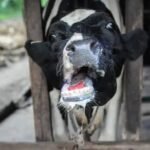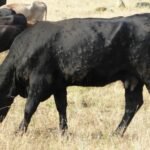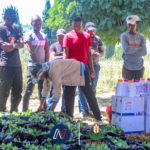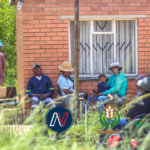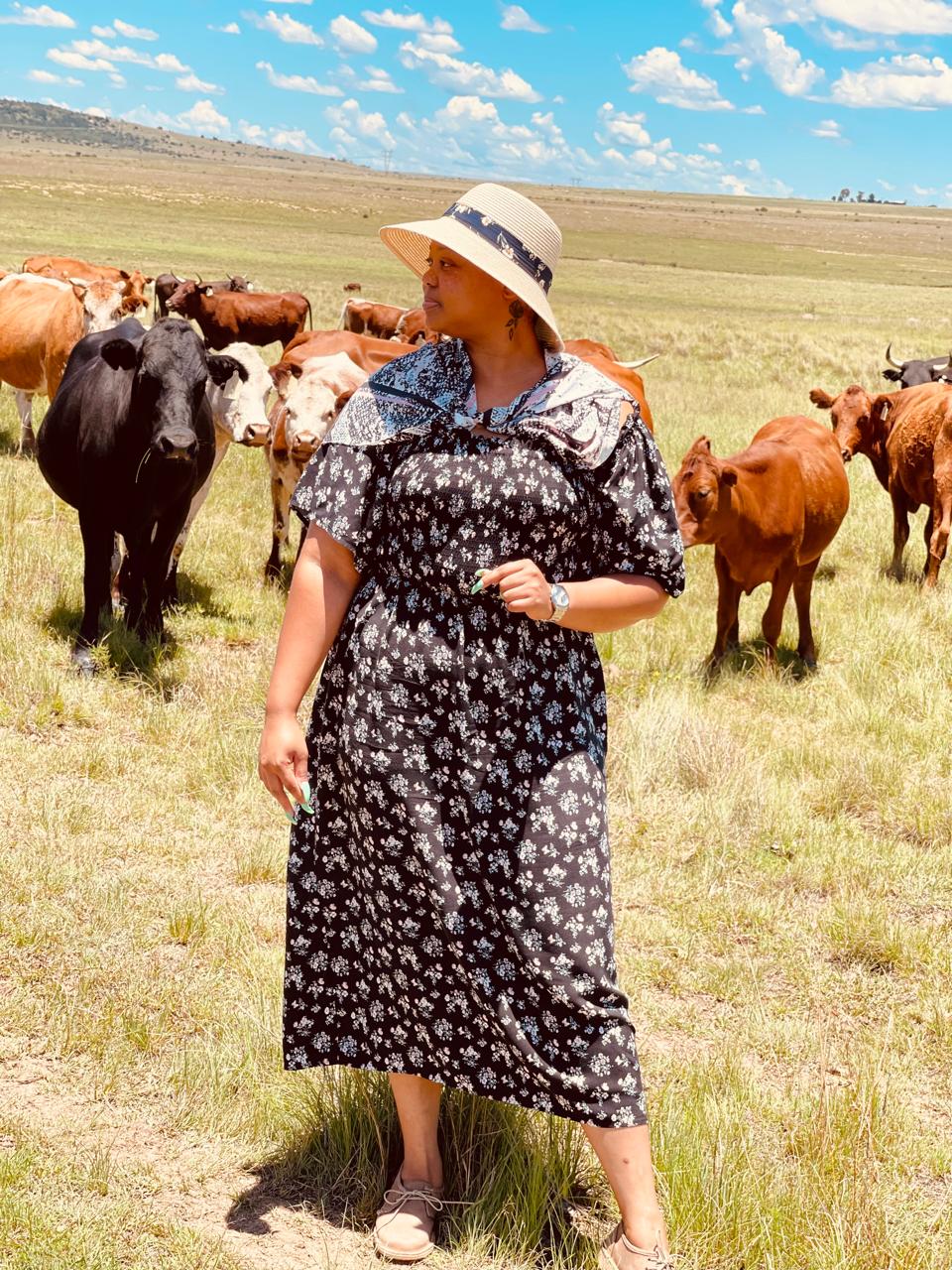In the small village of Lisemeng in Hlotse, Leribe, Makamohelo Sello once dreamed of furthering her agricultural education in Australia but with a different plan, fate swayed her journey differently.
Today Sello has emerged a trailblazer in commercial farming, commanding influence across both Lesotho and South Africa. Her journey, born from unexpected detours and fuelled by sheer determination, is a compelling story of transformation, resilience, and hope.
“I was about to further my studies in agriculture in Australia but when COVID-19 hit, everything changed. The borders were closed and my plans were suddenly suspended. I had to choose a new direction because my heart was set on agriculture practice advancement.” That new direction, she recounts, led her to her husband’s farm in South Africa.
What then began as a plan B quickly blossomed into a practical education in farming, an education no classroom could offer. “My husband played an important role in making me venture into animal rearing. He had been practicing crop farming since 2011, and joining him was the beginning of everything I am in agriculture.”
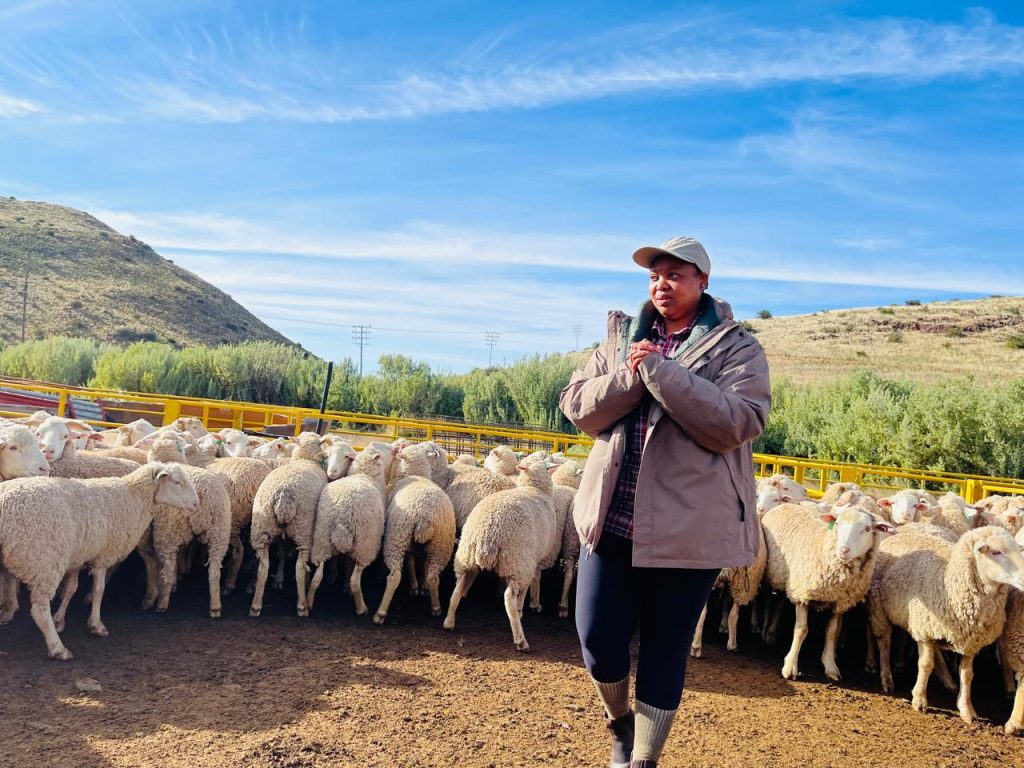
Under his guidance and the help of seasoned workers who had been with the farm since 2013, Sello says she immersed herself with lessons embedded in the day-to-day operations of commercial farming.
“They trained me in wool and mohair harvesting, breeding, injection programmes and nutrition and I must say, they did a great job because I now excel in what I do.”
She graduated from the practical learning school to now owning and managing Terry Farm, a 1,300-hectare operation in South Africa that specialises in livestock, wool, and mohair.
The farm also produces maize and beans and employs a team of ten workers, four full-time and six part-time, contributing meaningfully to job creation in rural areas.
“My journey through farming is filled with extreme highs and lows.
“From livestock mortality to stock theft and the high cost of feed and medication, it’s not easy. But despite all that, I have my moments of joy, growth, achievements and massive production. Even though I am not where I want to be yet, I am proud of how far I have come.”
She notes that her days begin at dawn.
“My mornings start at 5 a.m. I boil water, bathe, prepare breakfast, and then head to the kraals to count and record every animal. I take pride in knowing every single detail about my stock.”
Once her employees take the animals out to graze, she shares that she continues her day by doing household chores, feeding her chickens, and preparing lunch. But… “Life in this remote farming community comes with its challenges. At times I am forced to travel to Bethlehem or Kroonstad for essentials because we don’t have the services we need nearby, and that makes things more difficult.”
Yet even in the face of financial strain, Sello remains committed.
“When I started, what has surprised me the most was how expensive farming actually is. The cost of running a livestock operation, from healthcare to feed, is overwhelming. It took me a while to comprehend and appreciate, but the reward is in the resilience it builds and eventually the profits thereon.”
Sello has grown into more than just a farmer, she is now a mentor, employer and an advocate.
Regularly attending youth and women empowerment programmes in both South Africa and Lesotho, she shares her experience to inspire and equip others.
“All the knowledge and skills I have gained in South Africa, I try to put into practice to support farming in Lesotho because farming in both countries differs. There is a lot we can bring back including experience, mentorship and new ways of doing things.”
She says she envisions a future where commercial farmers are recognised not only as producers but as leaders of agricultural development.
“I so wish our country could give commercial farmers a chance, a real seat at the table. We can offer practical mentorship, skills transfer and proven approaches that would help smallholder and upcoming farmers to grow and reach their full potential.”
She advocates for open forums, discussions and support systems that give farmers access to advice, networks and learning opportunities.
“The more we share knowledge, the more we can grow together.”
Another issue close to her heart she says is agricultural education which she believes it is the missing link in transforming agriculture from survival to success in Lesotho.
“My dream is to see agriculture taken seriously in schools and extended into villages. We need to teach our people that farming is not just about survival. It’s a business. It’s a profession.”
She is also determined to challenge the stigma that links farming to poverty or illiteracy.
“There’s this saying that farming is for the uneducated, that stigma should be removed from people’s minds. Farming is powerful. It feeds nations and Basotho must see it as a respected, professional path.”
Looking ahead, her goals are bold and far-reaching; “I want to start exporting my breeds to countries like Lesotho, Botswana, and Nigeria. I want to sell stud rams, stud Bonsmara and eventually get into agro-tourism.”
Her vision for Terry Farm includes not just livestock excellence but creating a destination that invites people to experience the beauty and possibilities of agriculture.
“Agro-tourism would allow people to come, learn, experience, and enjoy what we have built and showing the world that farming can be modern, dynamic, and profitable.”
Sello’s journey is a living lesson in what it means to embrace change, to learn from adversity and to lead with purpose.
“Farming is not just a job, it’s a way of life. It’s about nurturing, growing and giving back, and though I still have far to go, I am proud of the distance I have covered,” she says.

